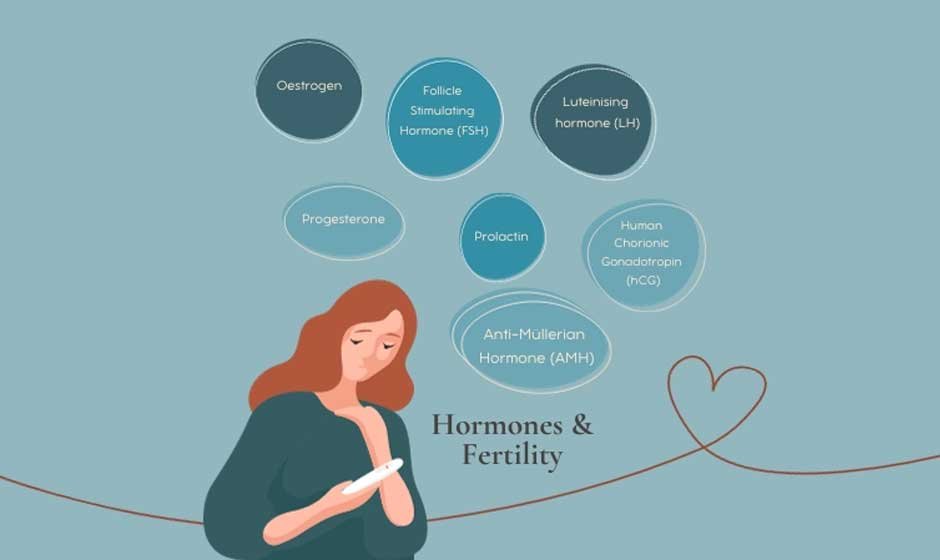While decoding everything to do with hormones is still an ongoing field of study for researchers around the world, fertility doctors have learned a great deal about the role of hormones and fertility. It turns out that hormonal regulation of the reproductive system is one of the most important keys to improving fertility and promoting successful conception. The endocrine (hormonal regulation) system is complex, with many hormones and cofactors being produced, but experienced fertility specialists can help you navigate the role of hormones in your fertility.
Meet the Hormones
According to the Endocrine Society, there are lots of hormones directly involved with fertility and conception. From the big names like testosterone and estrogen, to generally unheard of hormones like Anti-Müllerian Hormone (AMH), our bodies are incredibly complex machines which are regulated in minute detail by several different systems every second of the day. Here are just a few of the hormones responsible for the development and proper function of the reproductive system:
- Testosterone
- Estrogen
- Follicle-stimulating hormone (FSH)
- Estradiol
- HGC
- Prolactin
- Progesterone
- Luteinizing hormone
We encourage you to research some of these hormones and the rules they play in the reproductive system, but we will provide a general overview of the function of hormones infertility and conception below.
How Do Your Hormones Affect Fertility and Conception
The most important gland for regulating fertility hormones is the pituitary gland which is a small structure located in the brain, near the hypothalamus and optic nerve. This little gland stores and signals the production of many important hormones and often can clue us into issues that might arise with fertility. Reproductive hormones work in several ways to regulate both the male and female reproductive systems. For women, hormones play an important role in regulating menstrual cycles, uterine preparation for fertilization, and developing an embryo once fertilization has occurred. For men, hormones are directly involved in signaling to produce sperm, and for regulating the shape size and number of sperm produced which is equally as important for fertilization.
Hormone Regulation
As we’ve seen, hormones play probably the most important role in fertilization and conception, but they don’t work alone. Genetic factors predispose people to different hormonal levels, and sometimes functions, however certain environmental factors like diet and exercise as well as stress play a role as well. Generally, these environmental factors impact hormone production and signaling. for example, excessive stress levels release a hormone called cortisol which may negatively impact the release of reproductive hormones as cortisol is often a suppressant for other hormones via the hypothalamus-pituitary-adrenal axis (HPA) which is basically a fancy medical dialogue for saying stress levels can impact fertility.
Final Thoughts
As you begin or continue your fertility journey, you will likely encounter a myriad of hormones and cofactors which will likely constitute a large portion of your brain space for a while. Researching these hormones can be helpful in communicating with your fertility providers about your options, and whether these hormones might be impacting your fertility. Responsible Physicians and fertility specialists will be able to answer your questions about these hormones and provide insights as to how to better regulate these, but it’s important to remember that while we know a lot more about hormones than we did 20 years ago, it’s still a developing field of research, and new information is being found every day.





